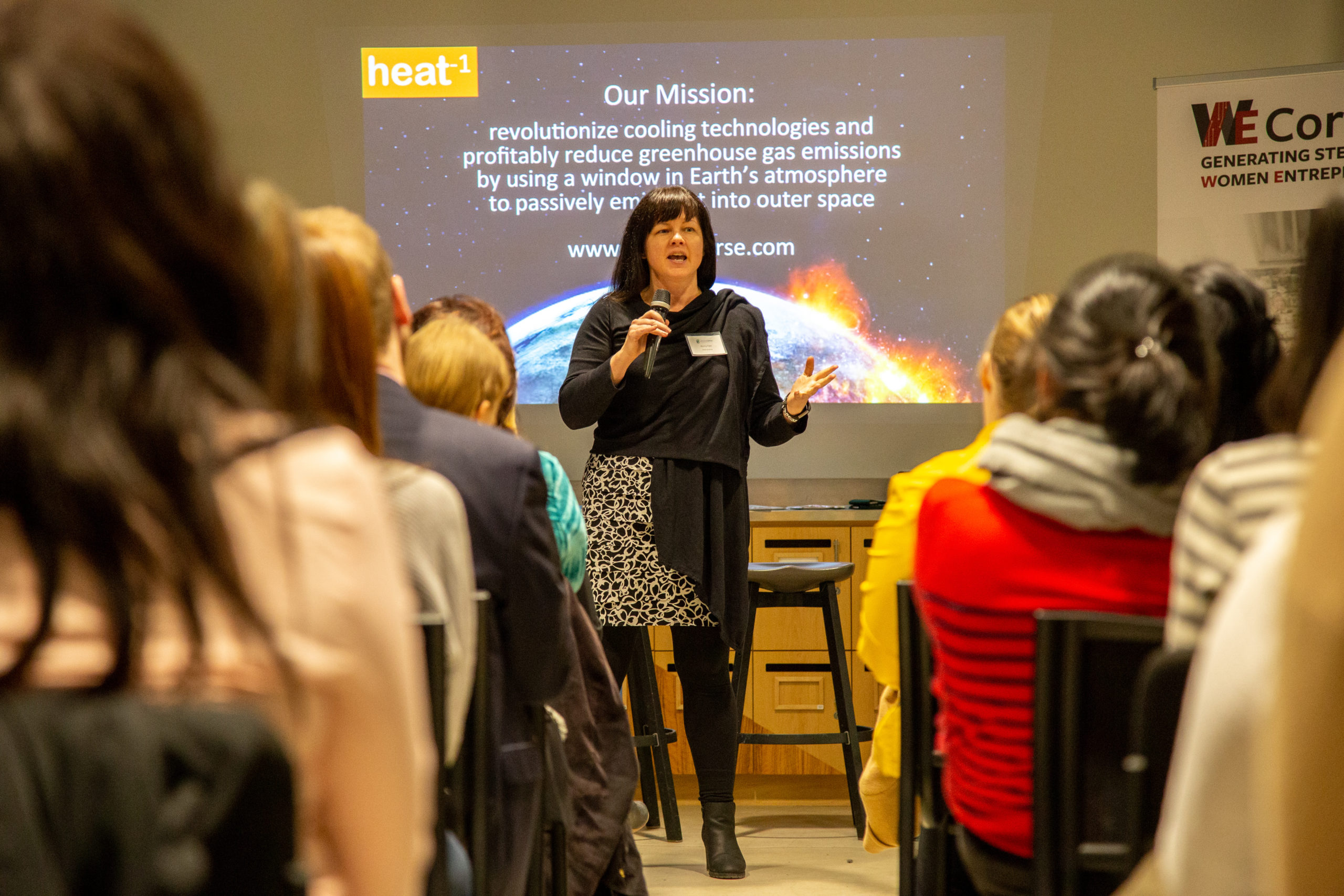
Heat Inverse Awarded $1 Million for Cooling Films
Leveraging Cornell’s extensive entrepreneurial ecosystem, tech startup Heat Inverse has reached milestone after milestone since its founding in 2018. Most recently, the company won a $1 million grant from the Small Business Innovation Research (SBIR) program, funded by the National Science Foundation (NSF), for its passive cooling thin film that requires zero energy input and generates no waste heat.
Founder and CEO Romy Fain, Ph.D. ’17, aims to apply her innovation, which she developed during her Electrical and Computer Engineering doctoral program, to sectors like refrigerated trucking, solar power systems, building materials, and electric vehicles.
The new funding brings Heat Inverse one step closer to achieving its mission to reduce greenhouse gas emissions by more than a gigaton while also lowering power costs and waste from multiple industries.
The films could reduce greenhouse gas emissions from the $1 billion refrigerated trucking industry alone by more than 15 million metric tons of carbon dioxide equivalent per year in the U.S.
Shortly after Dr. Fain completed her Ph.D. at Cornell University, Heat Inverse successfully completed one short course and later two National NSF I-Corps programs in two different market verticals. The I-Corps program guides entrepreneurs through customer discovery, a process for technical founders to determine whether a technology addresses customers’ needs, and requires at least 100 customer interviews per each national program completed.
While gaining a deeper understanding of their market opportunities, Fain and her team launched Heat Inverse in 2018. That year, Heat Inverse participated in the SBIR Phase 0 pilot program, which assisted early-stage deep tech startups in forming their businesses and seeking federal funding. By 2019, Heat Inverse won a $225,000 SBIR Phase I award — a major early funding achievement.
Since then, Fain has taken advantage of several other Cornell-affiliated programs to grow her company — Heat Inverse was a finalist in the 76West Clean Energy Competition and Grow-NY Food & Agriculture Business Competition. Additionally, the company participated in Luminate NY.
Heat Inverse joined Rev in 2018. As a member, Fain and her team have benefitted from access to one-on-one mentorship from Rev’s Entrepreneurs in Residence, a state-of-the-art coworking space with prototyping workshop access, and opportunities to network with potential partners and investors.
As a part-time mentor in Rev’s 2020 Prototyping Hardware Accelerator and participant 2021 Manufacturing Hardware Accelerator cohorts, Fain took advantage of the incubator’s resources and connections to advance from developing a prototype to bringing the product to market.
Heat Inverse has also competed in pitch competitions such as 76West, a $2.5 million competition supported by the New York State Energy Research and Development Authority (NYSERDA) and focused on building clean energy businesses and jobs in the Southern Tier. Heat Inverse was named a 76West semifinalist for two years in a row in 2019 and 2020. In 2021, the startup became a finalist in the $3 million Grow-NY Food and Agriculture Business Competition. Heat Inverse has also benefitted from support in programs like Scale For ClimateTech, Cleantech Open, and Plug and Play.
The company’s recent NSF SBIR Phase II award leads two recent $10,000 climate tech prizes from the 2022 EarthX pitch competition and the TechConnect National Infrastructure Innovation Competition. Heat Inverse will also continue installations and data collection at pilot locations with customers in cold chain, power generation, and food production through November, including paid pilots with customers like ConEd, Arizona Public Service, and NTA (recently acquired by DHL).
With the new funding, Heat Inverse will continue work on optimizing the thin films for various applications by scaling up their manufacturing to larger volumes, creating redundancies in their supply chain, testing with customers in multiple environments and further developing installation methods that further simplify integration of their product into multiple billion-dollar markets.
